LITTLE LUKER PROGRAM OF STUDY

2023-24 School Year




The Preschool follows the guidelines of the National Association for the Education of Young Children and is focused on providing an environment that emphasizes play and social-emotional development. Through intentionally planned activities and learning center experiences, Little Luker teachers facilitate the development of cognitive, expressive, and receptive communication skills, as well as fine and gross motor skills. We recognize that children learn as much through their interactions with each other as they do through their play, socialization, and small group experiences. We highly value this as part of our curriculum and our goal is to help our youngest children discover the value and love of learning.
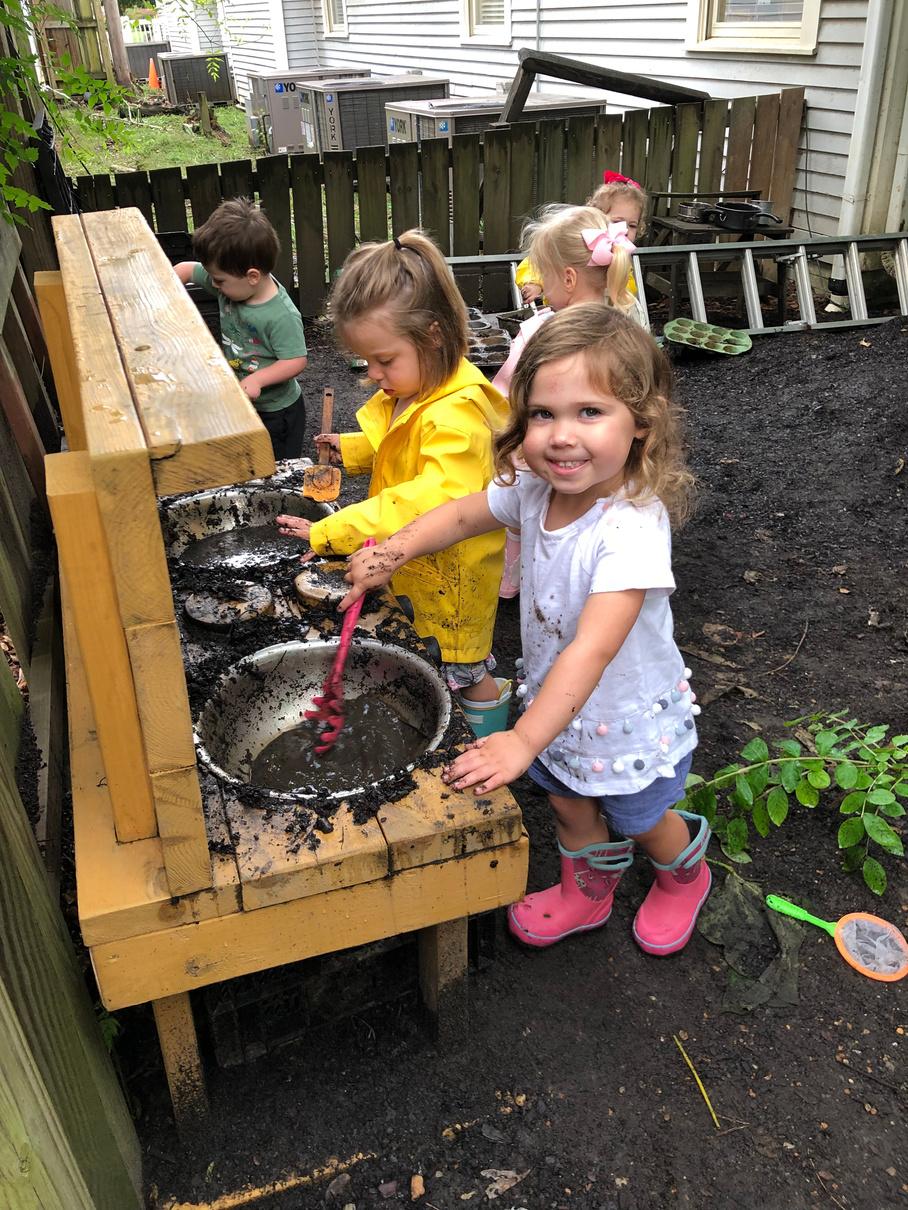
Play is the foundation of everything we do. Play and learning occur simultaneously they are not separate entities. We believe that child-initiated play is also the foundation for healthy growth and learning in a range of areas, from gross and fine motor skills to the development of imagination, social skills, creative problem solving, and language development. This groundwork is laid unconsciously through play as future academics will be built on these play experiences.
Unstructured play is open-ended with no set goal and unlimited possibilities Children engaged in unstructured play are in the process of establishing their own objectives:
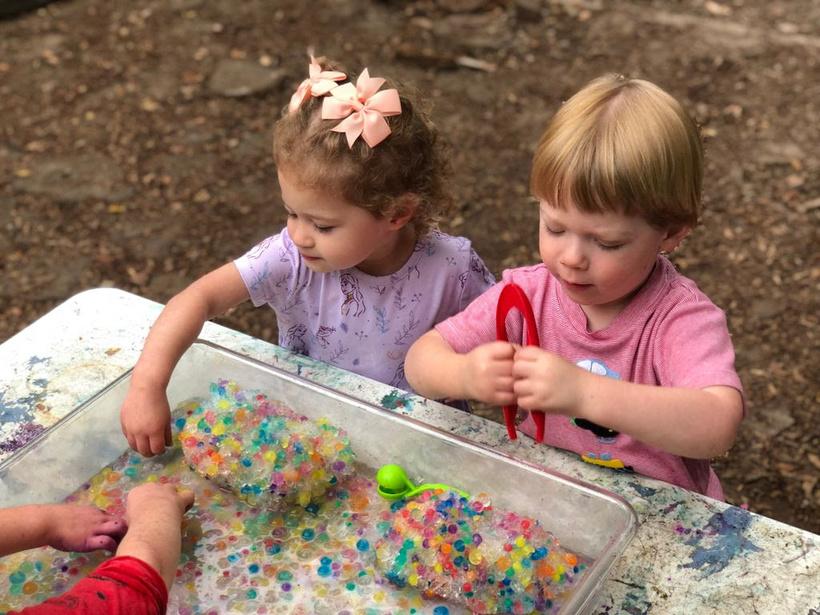
Dough/clay modeling and collage activities
Dramatic play and block construction
Sand and water play - sensory play
Imaginative and energetic outdoor play
Structured play has a specific goal and set of rules and objectives. During structured play, children are seeking the most effective way to achieve preexisting objectives
Indoor games such as morning manipulative activities, matching, puzzles, tic tac toe
Outdoor games such as red light, green light, tag, etc.
The use of the Messy Maths resource allows for investigation, inquiry, and a hands-on minds-on approach to help students build an awareness of the relevance of math in daily life. This will support each child’s curiosity and interest in many areas of mathematical thinking Our Tinker Lab/Maker Space is utilized to introduce STEM-based activities through hands-on minds-on activities.
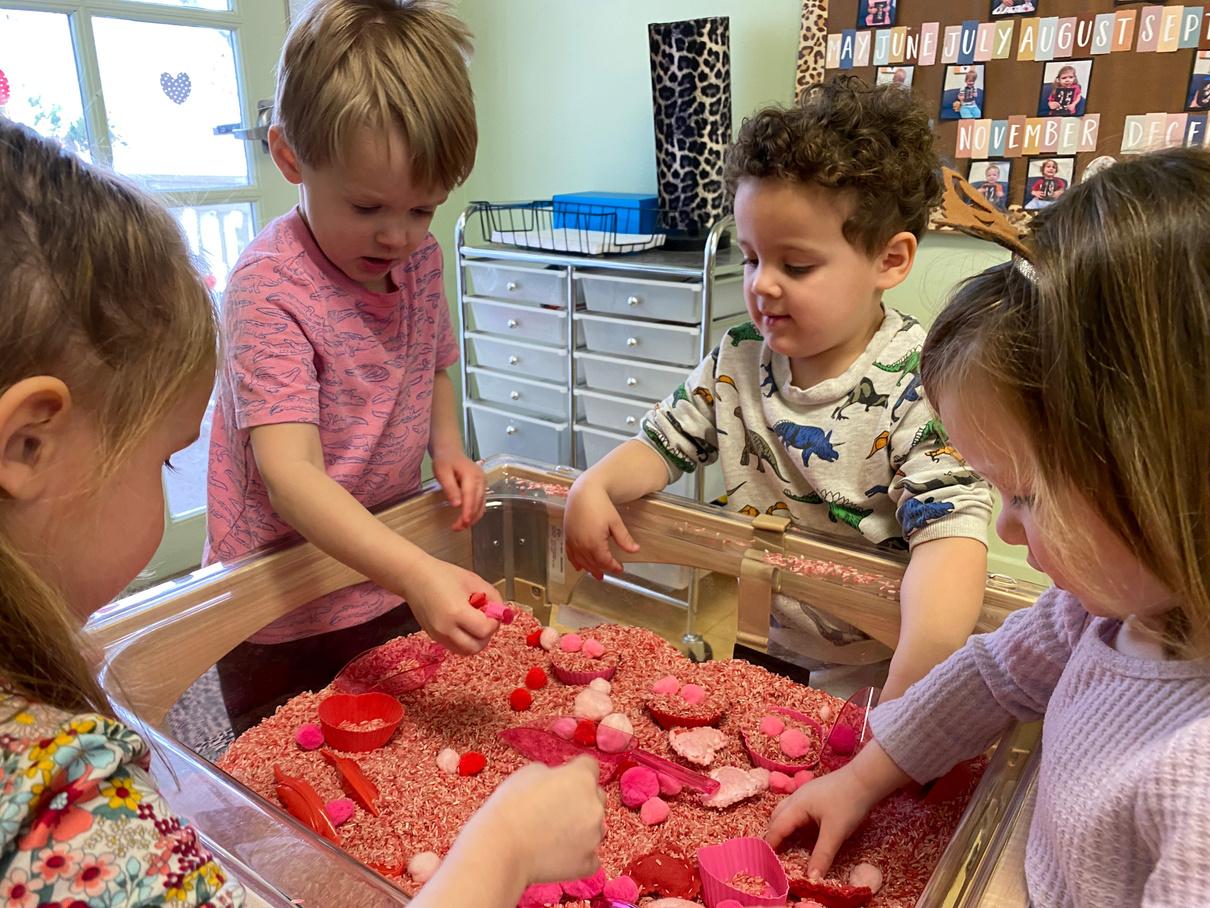
By the end of Little Luker, students will be able to: Developing Number Sense
Build an understanding of more and one-toone correspondence
Count by rote to 5
Build understanding of between, quantity, and size
Begin to understand relationships between objects
In addition, students will: Shapes and Colors
Recognize basic shapes (circle, square, and triangle)
Recognize primary colors (red, yellow, and blue)
Solve simple jigsaw puzzles and matching similar shapes
Sort and classify basic colors and shapes
Tinker Lab/Maker Space
Visit bi-weekly for intriguing, creative, collaborative activities around STEM
Students are immersed in language and literacy through a richly integrated, multisensory approach. Children enjoy listening to stories, and manipulating sounds and rhymes to enhance their experiences. Helping our youngest students discover the use, value, and love of language is our goal
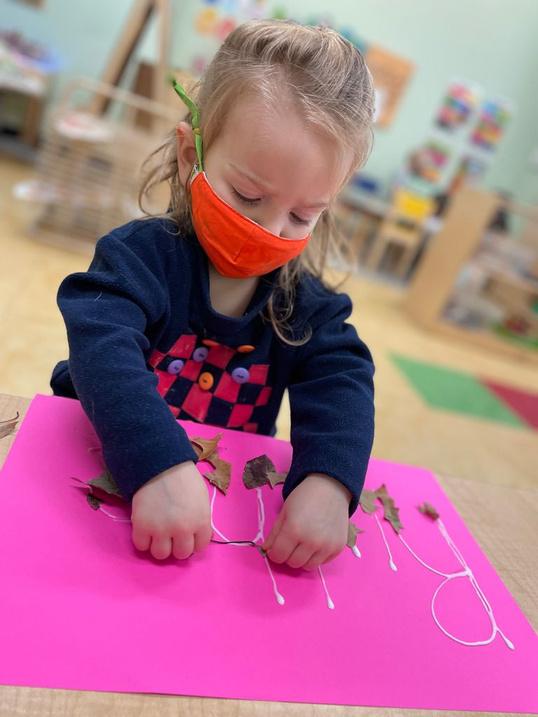
By the end of Little Luker, students will be able to:
Speaking and Expression
Provide play situations to promote social aspects of language development
Participate in conversations with adults and peers
Speech is understood by most familiar adults
Express wants and needs
Speak using complete sentences
Draw with intentionality
Hold writing material with pincer grip
In addition, students will:
Sing songs and rhymes
Tell stories for vocabulary expression and comprehension
Contribute to group discussions
Follow multi-step directions
Listen to books and stories for a short time
Begin tracing shapes and own name with magic window
Build vocabulary in an effort to facilitate conversation
Through the lens of our mission statement and the Formative Five students investigate themes related to geography, history, cultural studies as well as current events.
In addition, students will:
Understand the concepts of the Formative Five: Empathy, Grit, Integrity, Self-control and Embracing Diversity
Learn about each other's families and cultures
Demonstrate an understanding of community helpers and their jobs
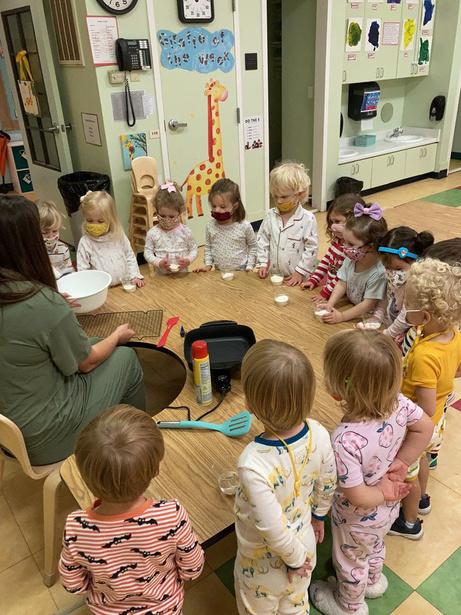
By the end of Little Luker, students will be able to: Formative Five Neighborhood and Community Holidays, Celebrations, and Traditions
Share Information about the holidays/traditions celebrated by their own family
Participates in weekly chapel services
Discuss and learn about unique cultures and diversity in our GSL community
Through read-aloud, discuss and learn about holidays, and cultures from around the world
Develop a sense of community in both the classroom and school
Understand and recognize familiar locations and routines that take place at school
Speak and play-act about those who live and work in the neighborhood
Our outdoor space is a certified Natural Wildlife Habitat by Natural Wildlife Federation
The outdoor classroom offers many different areas that children can explore: garden beds, mud kitchen, log stools for meetings, dramatic play and arts, and a shaded pergola. During this time students have the opportunity to learn more about nature and the world around them.
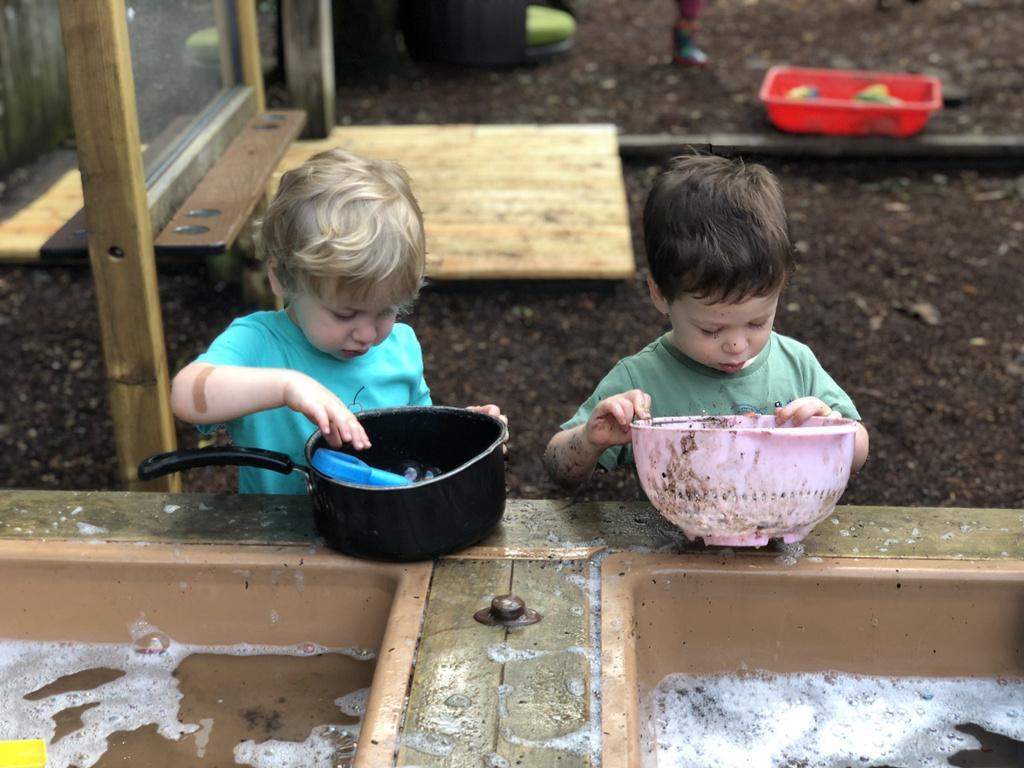
By the end of Little Luker, students will be able to:
Recognize that the weather changes with the seasons
Understand that they have 5 senses that can help them explore their surroundings
Explore a variety of sensory experiences which heightens their awareness of the world around them and builds on their inquiring nature
In addition, students will:
Experience planting flowers in the outdoor classroom
Tinker Lab/Maker Space
Visit bi-weekly for intriguing, creative, collaborative activities around STEM
Library classes are designed to introduce our youngest children to the school library and to foster a lifelong love of books and reading. Read aloud include songs, movement, puppets, and other means to create engagement and enthusiasm. Books selected include bright illustrations, repetitive texts, rhyming, pop-up pages, and lift-the-flap designs. Additional books are selected to support the Formative Five traits and promote selfesteem and kindness
By the end of Little Luker, students will be able to:
Fully participate in the group read aloud
Identify some colors, shapes, and numbers within books
Answer basic “who, what, where” questions related to books read
Demonstrate a basic understanding that stories have a beginning, middle, and ending
In addition, students will:
Participate as the class tries to predict events within a story as it unfolds
Demonstrate an understanding of how to hold and care for books
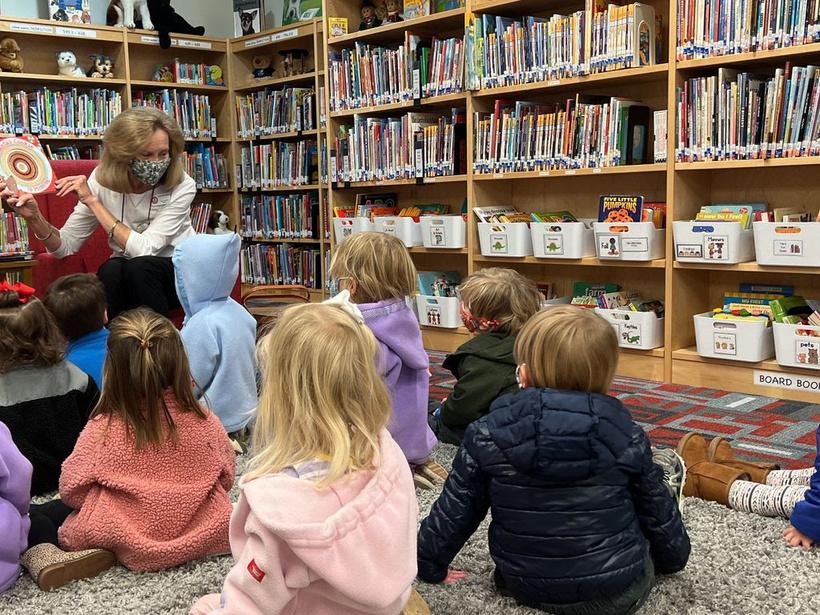
For young children, acquiring a new language comes naturally. At this age, the brain is wired for learning new language skills. Children will explore the Spanish language through music, games, and stories
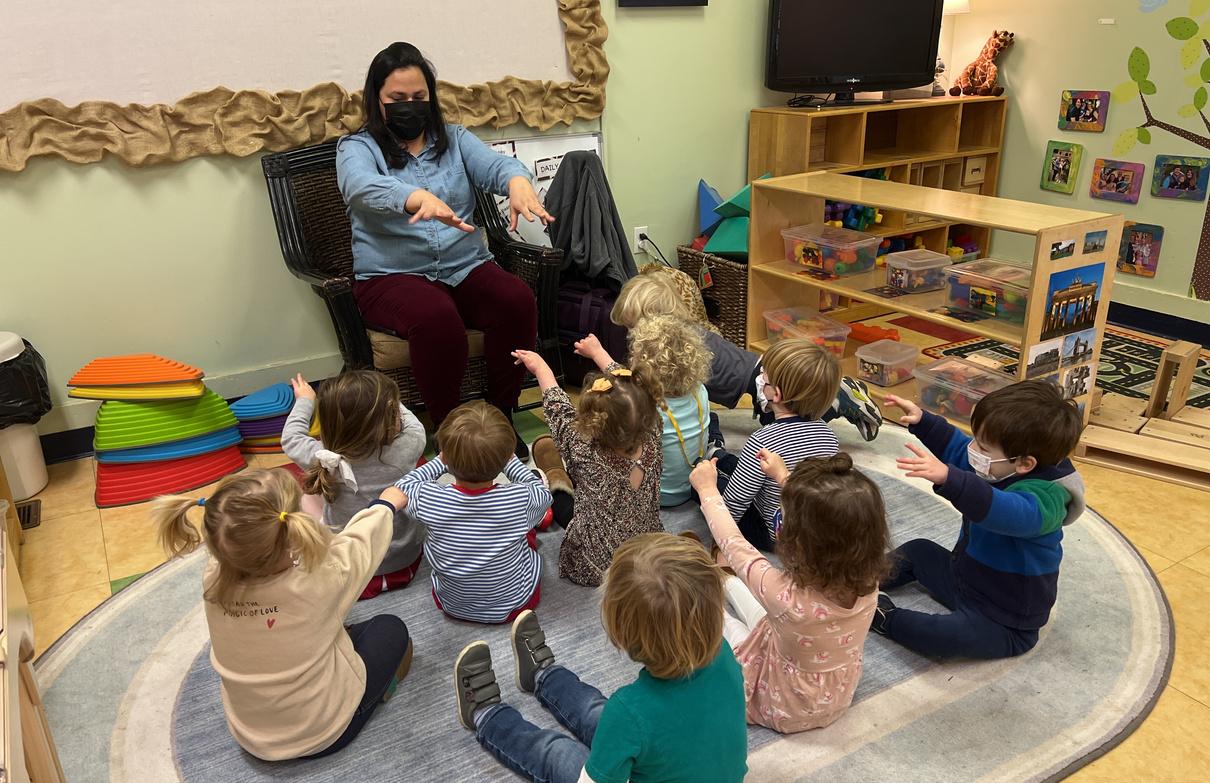
By the end of Little Luker, students will be able to:
Use greetings appropriately (hello/goodbye)
Identity primary colors and numbers 1-5
Identify music or songs in the target language
State the names of familiar animals with visual support
In addition, students will:
Be exposed to the rhythms and sounds of the Spanish language
Listen and respond to interactive ReadAlouds
Learn about seasonal vocabulary, customs, and holidays from Hispanic culture
Musik Adventures curricula engage the children in weekly activities that encourage multisensory learning, stimulating multiple areas of the brain at once We focus on different musical concepts throughout the year, introduce the students to different musical genres and styles that help foster a lifelong love and appreciation for music. And when young children are consistently engaged with music in an age-appropriate, socially accepting environment, developmental benefits multiply. We see an increase in selfesteem, ability to take turns, fine and gross motor skills, and literacy - just to name a few!
By the end of Little Luker, students will be able to:
Singing and Vocal Development
Participate in singing songs with repeated words and rhythm
Movement
Act out musical stories through movement
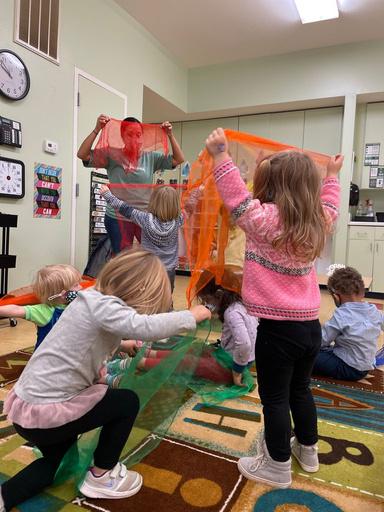
Stomp and clap to the music which helps them to understand the space their body occupies and its capabilities
Focused Listening
Identify a range of orchestra instruments and their sound quality
Hear patterns and rhymes
In addition, students will: Ensemble Experiences
Learn to participate in a small group of musicians playing at a certain time and learn how to keep a steady beat
Exploring and playing a variety of musical instruments
Learn to hold a mallet, hit a drum, use shakers, and play the xylophone and other instruments to help increase fine and gross motor skills
Discover ME stories, discussions, and activities teach children specific skills and strategies on what they can do to manage their own behavior. Discover ME is designed to teach children at an early age how to learn by teaching these essential skills that have a positive influence on learning – impulse-control, self-awareness, how to pay attention and listen, how to focus, be present, and breathe with intention. These skills not only facilitate learning but encourage skills and strategies that equip children with the ability to take control of their own lives by CHOOSING positive words and actions.
By the end of Little Luker, students will:
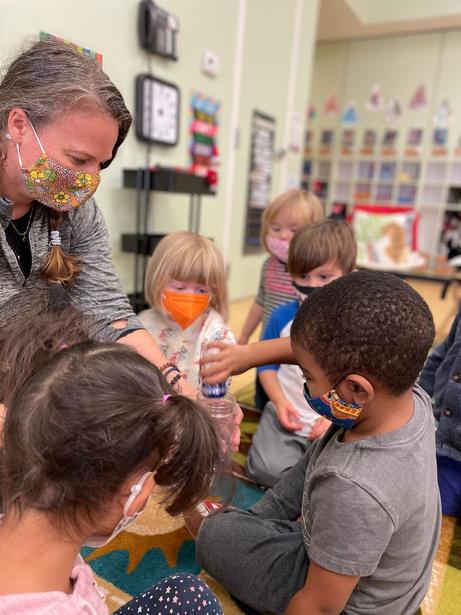
be introduced to techniques of Mindfulness
(flower, candle, breath, “Calm Your Glitter” Jar)
Begin to manage their own behavior
Begin to take responsibility for their actions
Stop and think about the consequences for what they choose to say and do
In addition, students will:
Make mindful choices
Resolve conflicts peacefully